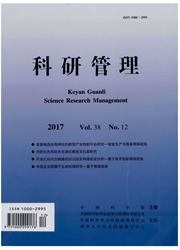

 中文摘要:
中文摘要:
针对企业如何在动态环境下获取持续竞争优势这一战略管理领域研究难点问题,首先基于危机管理理论四个阶段将动态能力划分为与之对应的感知能力、学习能力、整合能力和创新能力四个维度;然后构建动态能力、危机管理和企业竞争优势的关系模型,揭示了动态能力在应对企业危机过程中重塑企业竞争优势的内在机理,并以丰田汽车公司为例,对所提理论模型进行了案例研究。案例研究结果表明,动态能力能够在企业危机管理过程中发挥重要作用并能够使企业重获竞争优势,证明了所提理论模型的科学性和有效性。本研究为动态环境下企业竞争优势相关研究提供了新视角,并有助于将动态能力理论向实践应用扩展,将企业危机管理向理论高度提升。
 英文摘要:
英文摘要:
In order to explore the approaches to gaining competltive advantages in a dynamic environment, the current study proposed a research model regarding the relationships between dynamic capabilities, crisis management, and competitive advantages. More spe- cificaUy, we identified four dimensions of dynamic capability - perceptive capability, learning capability, integration capabRity, and innovation capability - according to the four periods in crisis management. We then used Toyota Motor Corporation as a model to con- duct a case study, and the research results show that dyrmsrfic capabilities can play an important role during the crisis nmnngement process and help the firm regain competitive advantage, thus supporting the proposed model. This study affers a new perspective to re- search competitive advantage under a dynamic environment. In addition, our study contributes to existing literature by improving the application value of the dynamic capability theory and adding theoretical components to crisis management.
 同期刊论文项目
同期刊论文项目
 同项目期刊论文
同项目期刊论文
 期刊信息
期刊信息
